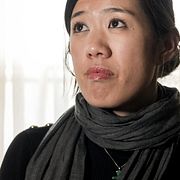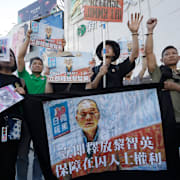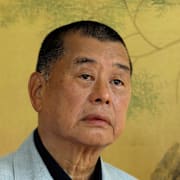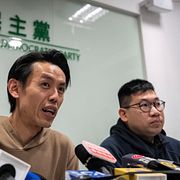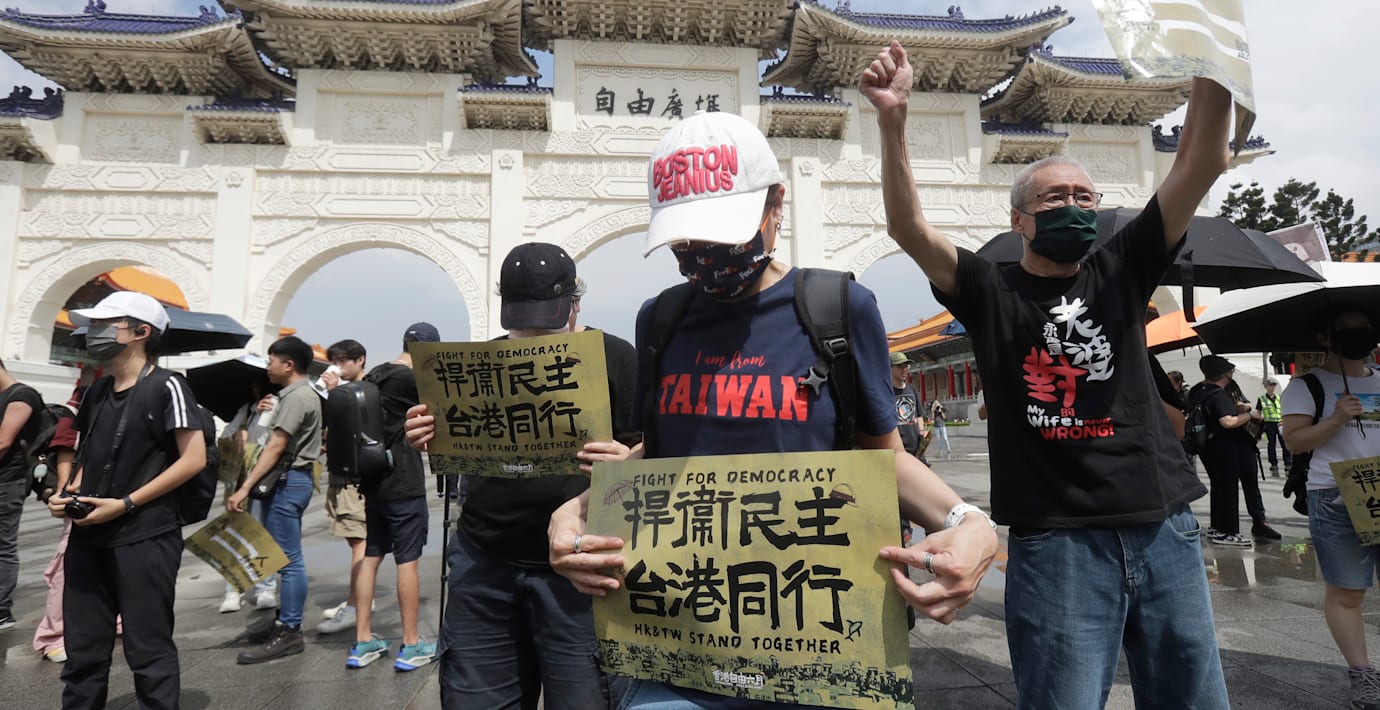
Oppositionen i Hongkong planerar att upplösas
Ledarna i för det demokratiska partiet i Hongkong meddelar att de planerar att lägga ner sitt parti, rapporterar BBC.
Partiet var en gång i tiden den starkaste rösten för ett demokratiskt Hongkong men har blivit hårt förföljt av Kinas auktoritära regim sedan studentprotesterna 2019.
Peking införde 2021 en lag i Hongkong som uteslöt personer som inte är lojala mot kommunistpartiet från att ställa upp i val. Lagen innebar i praktiken att det demokratiska partiet förbjöds.
Partiets medlemmar ska inom kort rösta om partiet ska läggas ner eller inte, uppger ordföranden Lo Kin-Hei.
bakgrund
Protesterna i Hongkong 2019–2020
Wikipedia (en)
The 2019–2020 Hong Kong protests (also known by other names) were a series of demonstrations against the Hong Kong government's introduction of a bill to amend the Fugitive Offenders Ordinance in regard to extradition. It was the largest series of demonstrations in the history of Hong Kong.
The protests began with a sit-in at the government headquarters on 15 March 2019 and a demonstration attended by hundreds of thousands on 9 June 2019, followed by a gathering outside the Legislative Council Complex on 12 June which stalled the bill's second reading. On 16 June, just one day after the Hong Kong government suspended the bill, a larger protest took place to push for its complete withdrawal. The protest was also in response to the perceived excessive use of force by the Hong Kong Police Force on 12 June. As the protests progressed, activists laid out five key demands. Police inaction during the 2019 Yuen Long attack and brutality in 2019 Prince Edward station attack further escalated the protests.
Chief Executive Carrie Lam withdrew the bill on 4 September, but refused to concede to the other four demands. A month later, she invoked emergency powers to implement an anti-mask law, escalating the confrontations. The storming of the Legislative Council in July 2019, deaths of Chow Tsz-lok and Luo Changqing, one of whom was unarmed, and sieges of the Chinese University and the Polytechnic University in November 2019 were landmark events. The unprecedented landslide victory of the pro-democracy camp in the November local election was widely regarded as a de facto referendum on the city's governance.
The outbreak of the COVID-19 pandemic in Hong Kong in early 2020 largely silenced the protests. Tensions mounted again in May 2020 after Beijing's decision to promulgate a national security bill for Hong Kong. By mid-2020, the Hong Kong government had declared the restoration of peace and stability with the imposition of the national security law. More than a hundred people, including several prominent activists, have been arrested since the imposition of the law. The resulting political atmosphere, along with the crackdown on civil society, sparked a wave of mass emigration from the city.
The approval ratings of the government and the police plunged to their lowest points since the 1997 handover. The Central People's Government alleged that foreign powers were instigating the conflict, although the protests have been largely described as "leaderless". The United States passed the Hong Kong Human Rights and Democracy Act on 27 November 2019 in response to the movement. The tactics and methods used in Hong Kong inspired other protests that followed worldwide.
Omni är politiskt obundna och oberoende. Vi strävar efter att ge fler perspektiv på nyheterna. Har du frågor eller synpunkter kring vår rapportering? Kontakta redaktionen
